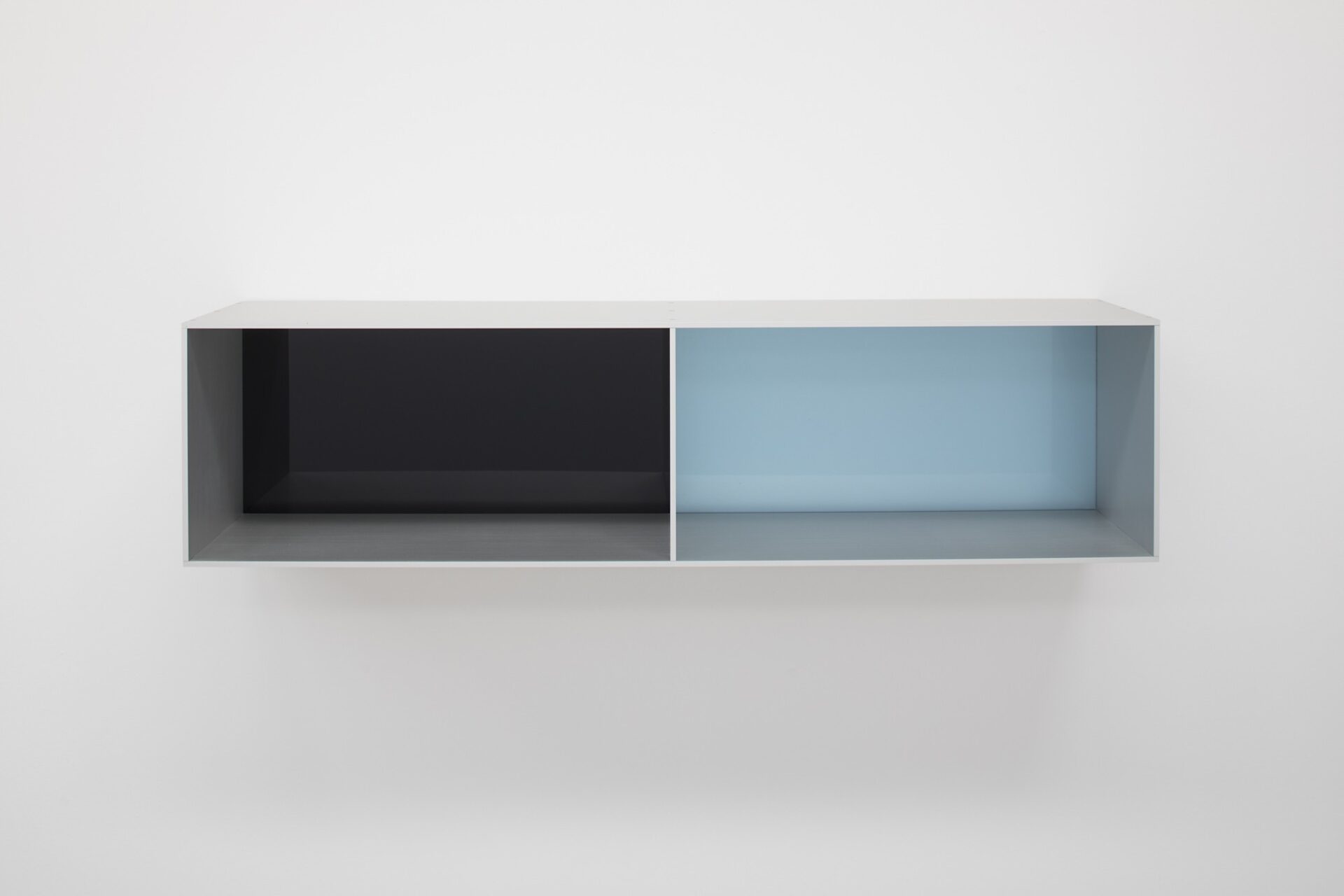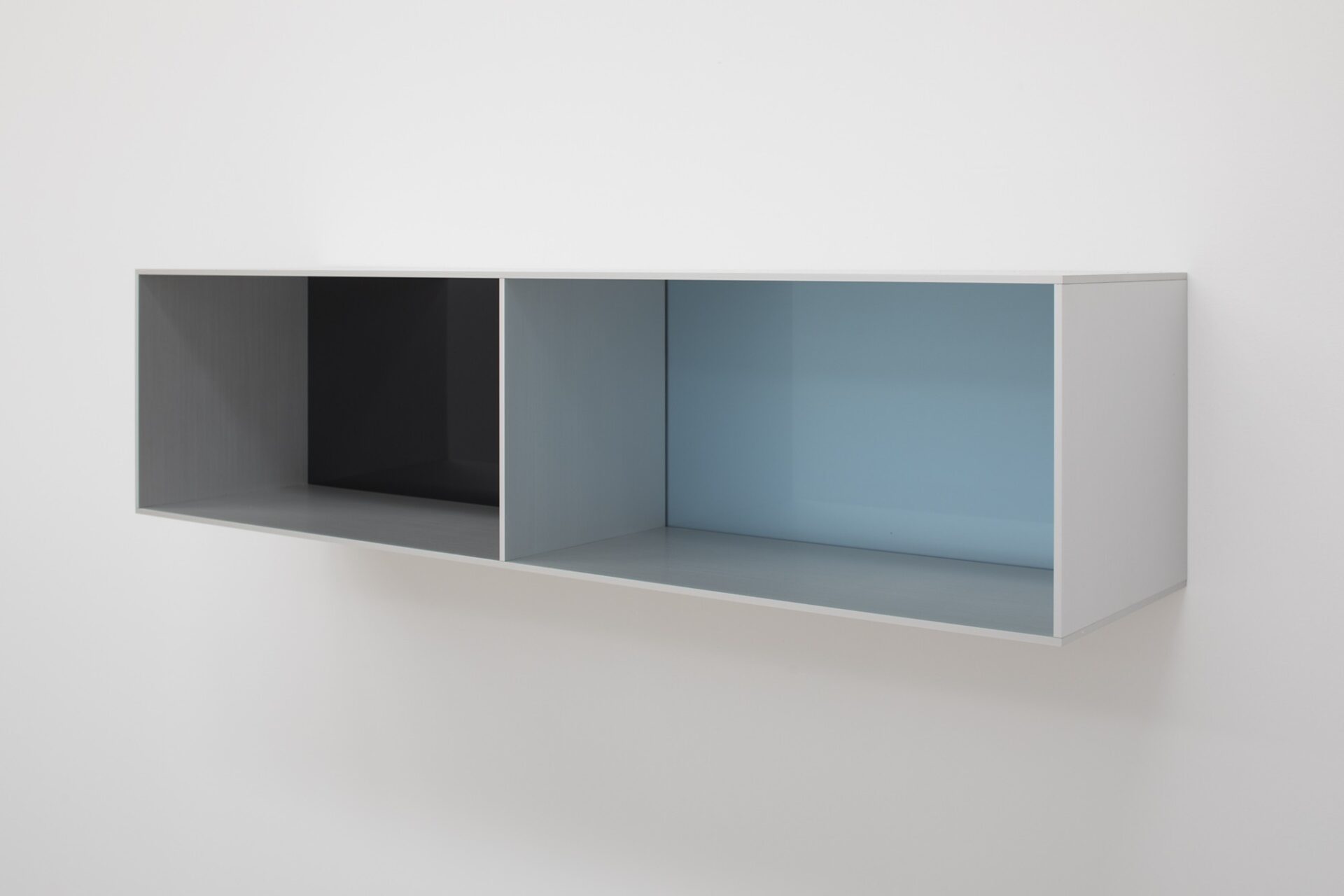Donald Judd installed seven anodized aluminum works at his studio at Las Casas. Each of the works has dimensions that are consistently proportional, either 1:2:1 or, as in this work, 1:4:1. For this piece, Judd used black and blue plexiglass in an additional proportional relationship of 1:2 with a center divider.
Of the Swiss factory where this work and the additional works installed in his studio at Las Casas were fabricated, Judd said in a 1990 interview, “I am almost sure that there is no factory east of the Mississippi that can do as good a job,” adding:
That is one reason why I am doing it there. So much for the perfection of the United States. I don’t consider the pieces perfect. I just don’t think of them in that way. They should be well made, because if they are badly made, it is obtrusive, that’s all. Being well made is just eliminating troubles and things to be distracted by. So, perfection is not exactly what my idea is.1
Each work engages space by projecting from the wall, as Judd indicated, “at least as much as its height.”2 In his 1983 essay “Art and Architecture,” Judd wrote, “Proportion is very important to us, both in our minds and lives and as objectified visually, since it is thought and feeling undivided, since it is unity and harmony, easy or difficult, and often peace and quiet. Proportion is specific and identifiable in art and architecture and creates our space and time.”3

